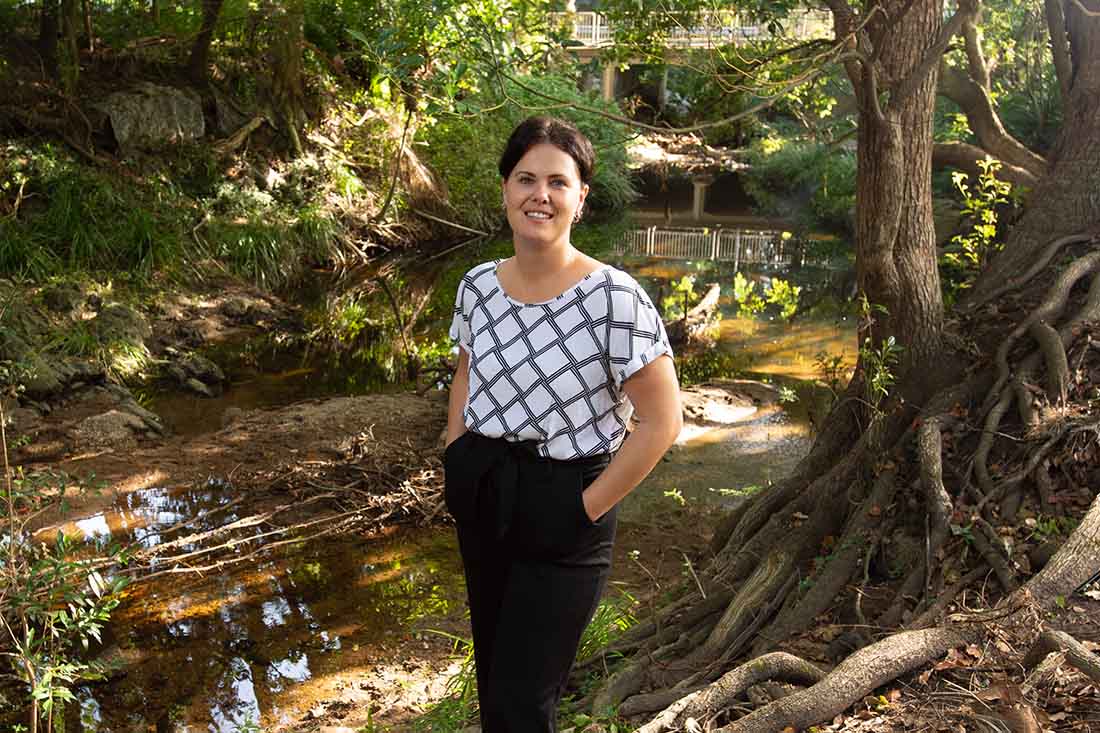Careers and outcomes
Practitioners working in the field of environmental health are involved in promoting healthy environments and managing environmental factors that affect human health. These may include: environmental degradation, climate change, contaminated food and water, waste management, disaster management, dangerous goods and chemicals, and drug safety management.
Leading industry professionals are contributors to the development and ongoing sustainment of our programs. They provide insight into emerging trends and are regular guest lecturers and presenters in many of the environmental health subject areas.
Many graduates find employment as an environmental health officer (EHO). Their role may include: auditing of food safety and standards, environmental (e.g. air, water, noise) monitoring, investigations of environmental health complaints/issues, investigation of infectious disease outbreaks (e.g. food borne illness, Legionnaires disease, lead poisoning, Q fever, meningococcal disease), infection control auditing, mosquito and vector control, implementing tobacco control initiatives, working with Indigenous communities, policy development, health promotion, and prosecutions for breaches of health and environmental legislation.
Graduates of this program gain employment with local councils or state government departments, with positions also available with Commonwealth Government agencies, including the Australian Defence Force. There are an increasing number of private sector positions being created particularly in the areas of environmental and food safety auditing/management. There are also employment opportunities in other countries, such as the UK, USA and Canada, as well as in developing countries. Graduates are well prepared to compete for, and effectively perform, in a wide range of roles and responsibilities.
Careers and outcomes
Many graduates find employment as an environmental health officer (EHO). Their role may include: auditing of food safety and standards, environmental (e.g. air, water, noise) monitoring, investigations of environmental health complaints/issues, investigation of infectious disease outbreaks (e.g. food borne illness, Legionnaires disease, lead poisoning, Q fever, meningococcal disease), infection control auditing, mosquito and vector control, implementing tobacco control initiatives, working with Indigenous communities, policy development, health promotion, and prosecutions for breaches of health and environmental legislation.
Graduates of this program have an opportunity to gain employment with local councils or state government departments, with positions also available with Commonwealth Government agencies, including the Australian Defence Force. There are an increasing number of private sector positions being created particularly in the areas of environmental and food safety auditing and management. There are also employment opportunities in other countries, such as the UK, USA and Canada, as well as in developing countries. Graduates are well prepared to compete for, and effectively perform, in a wide range of roles and responsibilities.
Professional recognition
This course was the first postgraduate course to be accredited with Environmental Health Australia and graduates are eligible to practice as environmental health officers.
Possible careers
- Environmental health officer
- Government officer
- Policy officer
- Public health officer

